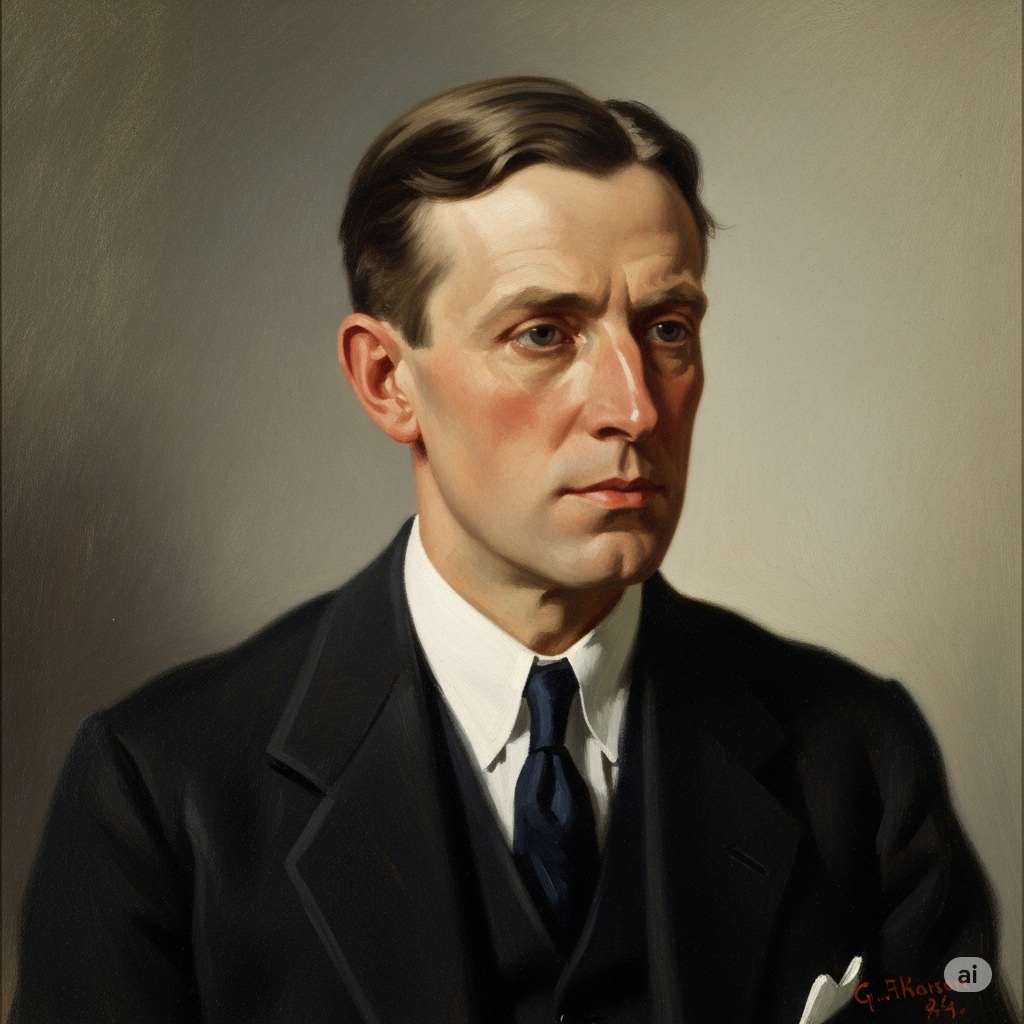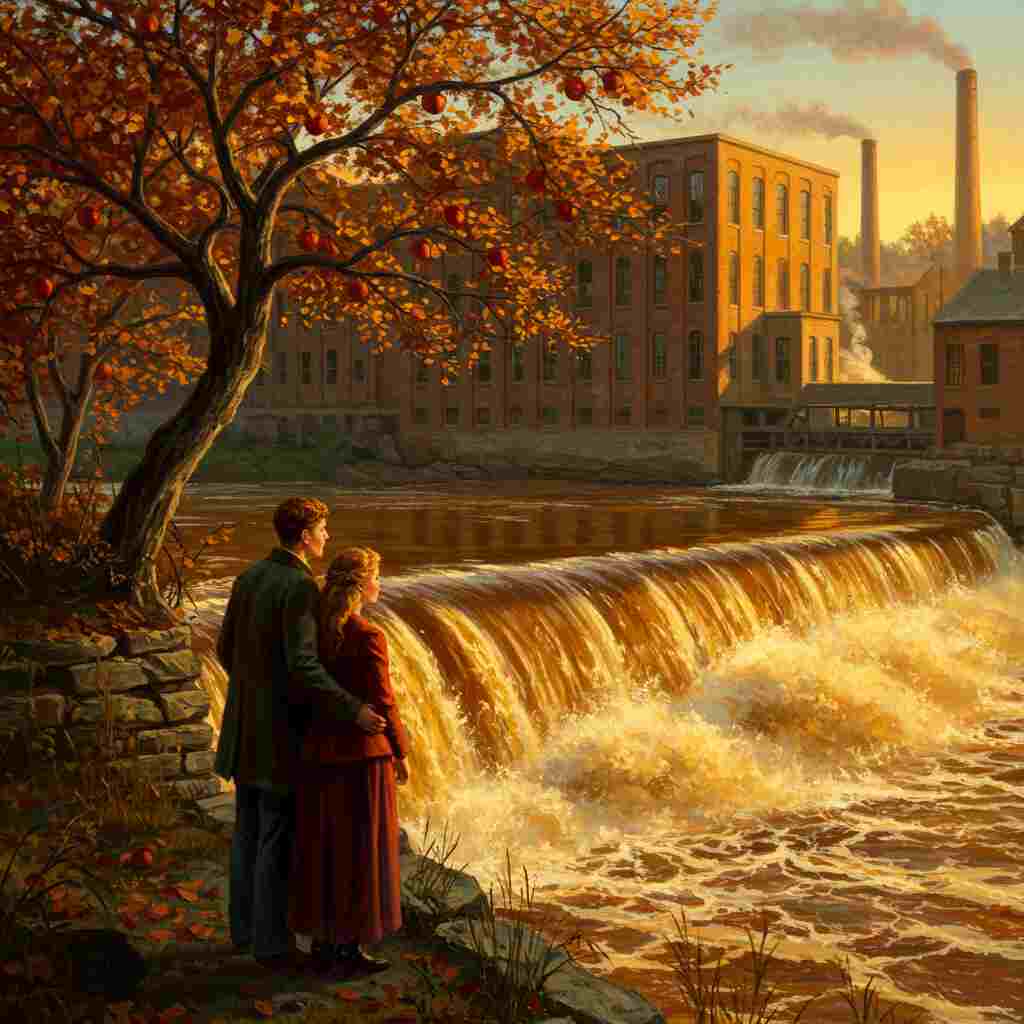2 Poems by Wilfrid Wilson Gibson
1878 - 1962
Wilfrid Wilson Gibson Biography
Wilfrid Wilson Gibson, born in Hexham, Northumberland, in 1878, emerged as a significant figure in early 20th-century English poetry. His life and work spanned a period of profound social and literary change, from the late Victorian era through two World Wars and into the mid-20th century.
Gibson's early years were shaped by his upbringing in the rugged landscape of northern England. The son of a pharmacist, he was educated at local schools before briefly working as a social worker in London's East End. This early exposure to urban poverty would later influence his poetic themes and social consciousness.
Initially, Gibson's poetry aligned with the Georgian movement, characterized by its focus on rural themes and traditional forms. His first collections, including "Urlyn the Harper" (1902) and "The Golden Helm" (1903), reflected this aesthetic, drawing on medieval and pastoral imagery. However, it was his shift towards a more realistic and socially engaged style that would define his mature work and secure his place in literary history.
The publication of "Daily Bread" in 1910 marked a turning point in Gibson's career. This collection, focusing on the lives of working-class people, demonstrated a stark departure from his earlier romantic style. Gibson employed dramatic monologues and vignettes to portray the hardships of miners, fishermen, and other laborers. This work, along with subsequent collections like "Fires" (1912) and "Thoroughfares" (1914), established Gibson as a pioneer of what came to be known as the "Dymock Poets."
The Dymock Poets, a loose association of writers including Rupert Brooke, Lascelles Abercrombie, and Robert Frost, gathered in the Gloucestershire village of Dymock in the years leading up to World War I. This period was one of intense creativity and camaraderie for Gibson, during which he honed his distinctive voice and expanded his poetic range.
The outbreak of World War I had a profound impact on Gibson's life and work. Initially rejected for military service due to his age and poor eyesight, he eventually joined the Army Service Corps in 1917. His war experiences, though limited, deeply influenced his poetry. Collections such as "Battle" (1915) and "Friends" (1916) captured the horror and futility of war, often focusing on the experiences of ordinary soldiers rather than grand heroics.
Gibson's war poetry is notable for its empathy and lack of jingoism, setting it apart from some of his contemporaries. His poem "Breakfast," with its stark depiction of a soldier's last meal before battle, exemplifies his ability to convey profound emotion through simple, everyday scenes.
In the post-war years, Gibson's poetry continued to evolve. While maintaining his focus on human experience, his style became more introspective and experimental. Collections like "The Golden Room" (1928) and "Islands" (1932) showcase a greater complexity in form and theme, reflecting the modernist influences of the period.
Throughout his career, Gibson maintained a prolific output, publishing over twenty volumes of poetry. He also wrote plays and prose, though these never achieved the same recognition as his verse. His work often grappled with themes of isolation, the relationship between humans and nature, and the dignity of ordinary lives.
Despite his initial success and influence, Gibson's reputation waned in the later years of his life. The rise of modernist poetry, with its emphasis on fragmentation and abstraction, overshadowed Gibson's more direct, narrative style. However, his contribution to the development of 20th-century English poetry, particularly in bridging the gap between Georgian and modernist sensibilities, remains significant.
Gibson's personal life was marked by both tragedy and enduring relationships. His marriage to Geraldine Townshend in 1912 was a source of stability and support throughout his life. The couple had two children, but also experienced the loss of a son in infancy, a theme that would recur in Gibson's later, more personal poetry.
In his later years, Gibson settled in Gloucestershire, where he continued to write and occasionally give poetry readings. Though his work was less in vogue, he maintained connections with younger poets and remained an respected figure in literary circles. His final collection, "The Alert," was published in 1941, reflecting on the renewed specter of war and the enduring human spirit.
Wilfrid Wilson Gibson died in 1962, leaving behind a rich poetic legacy. While his work may not have the same prominence today as some of his contemporaries, his influence on the development of 20th-century English poetry is undeniable. His ability to capture the voices of ordinary people, his sensitive treatment of social issues, and his skillful navigation of changing poetic styles make him a figure worthy of continued study and appreciation.
Gibson's poetry, with its focus on human experience and social realism, prefigured many of the concerns of later 20th-century literature. His work stands as a bridge between the romantic traditions of the 19th century and the modernist experiments of the 20th, offering a unique perspective on a period of profound cultural and literary change. For scholars and poetry enthusiasts alike, Wilfrid Wilson Gibson remains a compelling figure, his work a testament to the power of poetry to illuminate the human condition in all its complexity.
This text was generated by AI and is for reference only. Learn more
Username Information
No username is open
Everything is free to use, but donations are always appreciated.
Quick Links
© 2024-2025 R.I.Chalmers (V2Melody).

All music on this site by R.I.Chalmers (V2Melody) is licensed under a Creative Commons Attribution-NonCommercial 4.0 International License.
Attribution Requirement:
When using this music, you must give appropriate credit by including the following statement (or equivalent) wherever the music is used or credited:
"Music by R.I.Chalmers (V2Melody) – https://v2melody.com"
Support My Work:
If you enjoy this music and would like to support future creations, your thanks are always welcome but never required.
Thanks!



